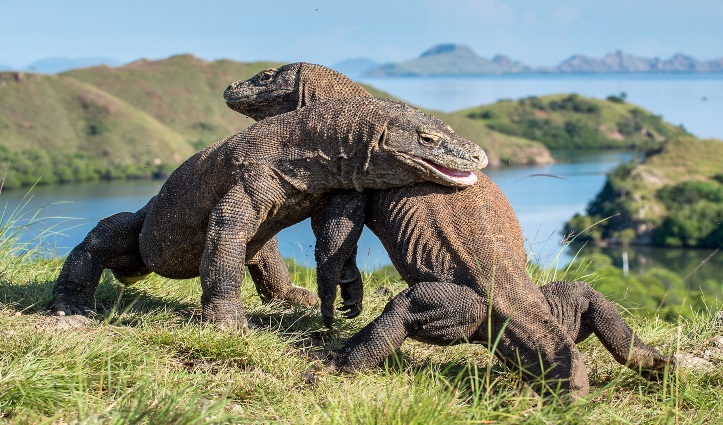
30 Oct THE WORLD’S ONLY DRAGON
Mikaela Price – Marketing Assistant
Imagine a world where you can observe animals dating back to over four million years ago and stare them directly in the eye. Furthermore, imagine if you found out that dragons weren’t just a product of embellishment for fairy tales and fantasy novels, but if they did in fact roam the earth? In the Komodo National Park of Indonesia, the mystical Komodo Dragons (Varanus komodoensis), direct descendants of dinosaurs, inhabit the various islands that make up the park and leave those lucky enough to encounter these fascinating creatures in absolute awe.
There are many facts about these dragons that make them even more impressive than those conjured up in fairy tales.
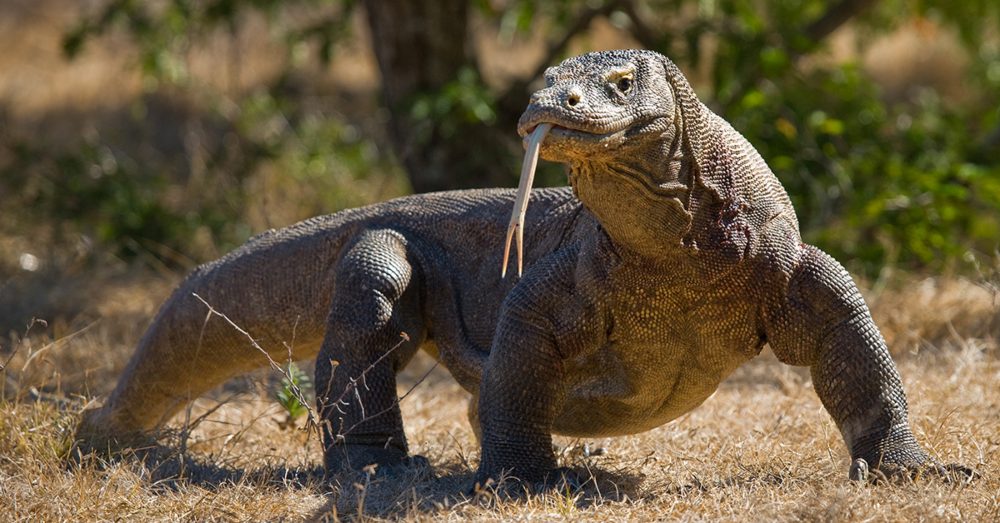
Weighing more than 158kg and measuring up to 3.6 metres, these gargantuan sized lizards are some of the most efficient carnivores on the planet. They are able to hunt using their tongue – which can taste the air and determine if a particle has been left behind by something that they consider tasty up to an impressive 9km away. Their bite is laced with anticoagulants (which prevent blood clots) and a victim on the receiving end of one of them will bleed non-stop. The dragons also have quite an appetite as they can eat up to 80% of their body weight in one sitting.
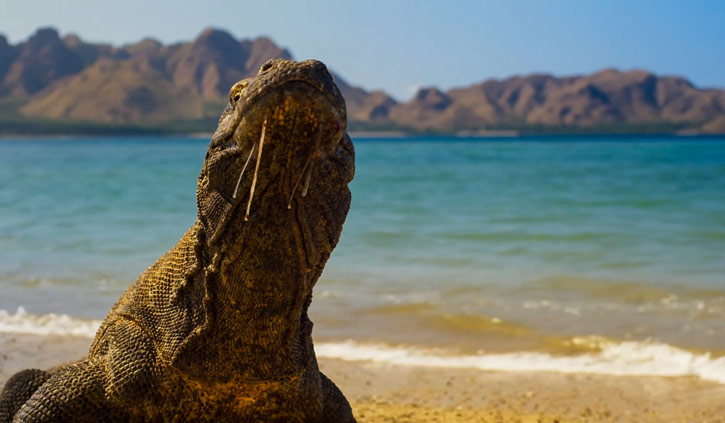
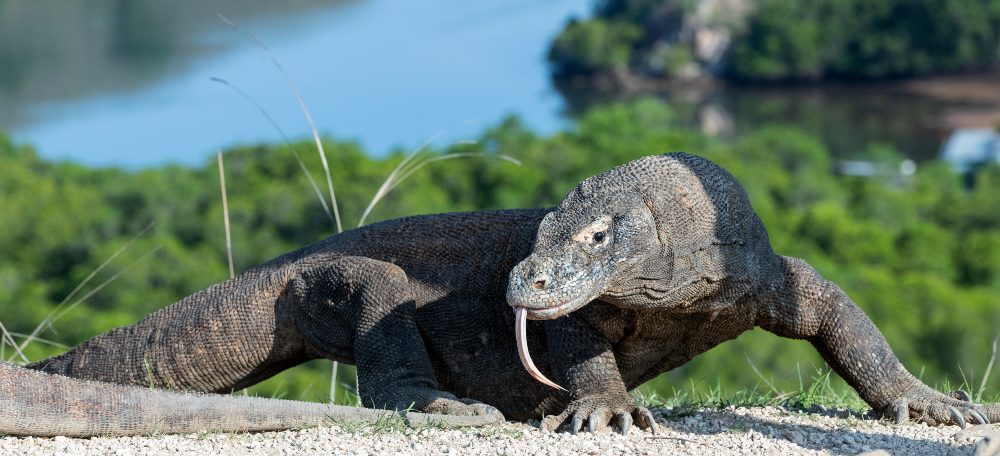

The Komodo National Park, where they inhabit, consists of three main islands; Rincah, Komodo and Padar along with 26 smaller ones, occupying close to 2,000 square kilometres. The impressive fauna doesn’t just stop at dragons as the park is home to over 1,000 species of tropical fish, 260 species of coral and rare marine mammals such as the dugong. The park was also recognised as a UNESCO Word Heritage Site in 1991.
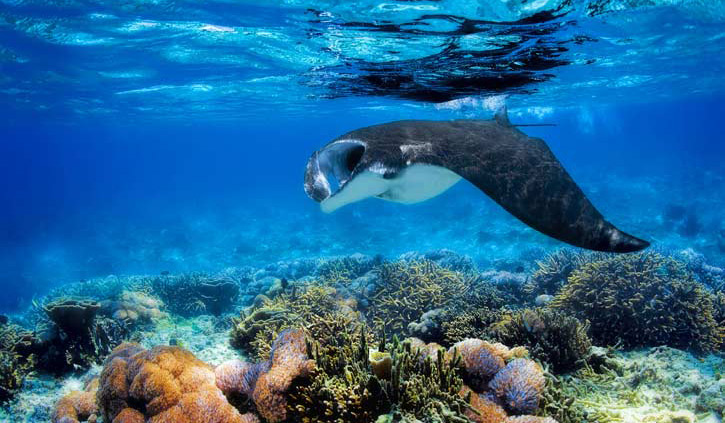
Needless to say this is just some of the many intriguing facts about the world’s only (living) dragon – the Komodo. If you are lucky enough to witness one, you too will be amazed at their similarity to their forefathers, the dinosaurs.
Komodo Dragons can be seen on the following cruises:
Fire & Dragons
Komodo National Park to Bali
In the Wake of the Makassans

